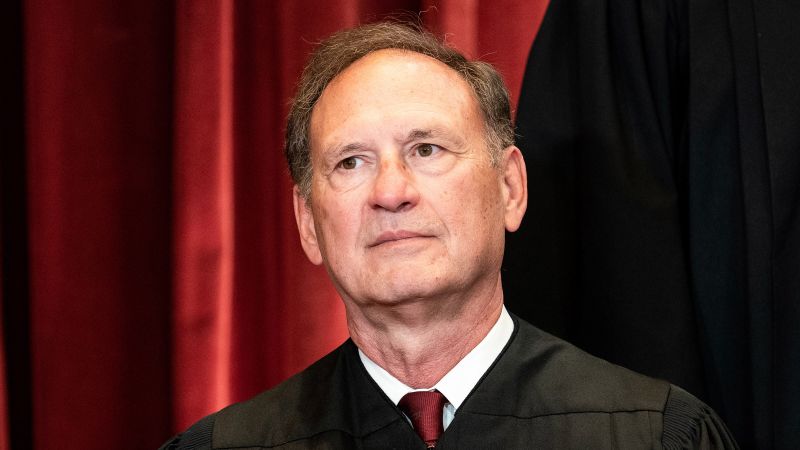Several Republican senators are defending Supreme Court Justice Samuel Alito amidst controversy surrounding flags displayed outside his vacation home. The “Appeal to Heaven” flag, a symbol associated with former President Donald Trump, was flown at Alito’s residence, as well as an upside-down American flag following the 2020 election. Some Democrats are calling for Alito to recuse himself from key matters before the court due to these displays.
Republican Senators John Cornyn and Chuck Grassley have spoken out in support of Alito, suggesting that the attacks on him are driven by political bias. They argue that Supreme Court justices have personal lives and should not be held responsible for everything their families do or say. Grassley also noted that issues of recusal can be handled internally by the Supreme Court, referring to recent changes in the court’s ethics protocols.
Despite criticism from some Republican senators regarding the flag displays, others such as Sen. Thom Tillis believe the scrutiny on Alito is overplayed by the press and that justices appointed by Democratic presidents do not face the same level of scrutiny. Sen. Bill Cassidy accused the New York Times of bias in their reporting on the flag incidents, suggesting that the age of the incidents should dictate how they are viewed.
On the other side, Democratic Senator Sheldon Whitehouse and House leaders such as Hakeem Jeffries and Katherine Clark are calling for Alito to recuse himself from cases related to the January 6 insurrection, Trump, and election integrity. They argue that Alito’s involvement in these cases would be inappropriate and raise questions about his impartiality. They believe that allowing Alito to participate in such cases would tarnish the judiciary and democracy.
Overall, the controversy surrounding Justice Samuel Alito’s flag displays has sparked debate among senators from both parties. While some Republicans defend Alito and dismiss calls for his recusal, Democrats are adamant that he should step aside from cases connected to January 6 and related issues. The differing opinions on this matter reflect the ongoing ideological divisions and political tensions within the Supreme Court and the broader political landscape.


